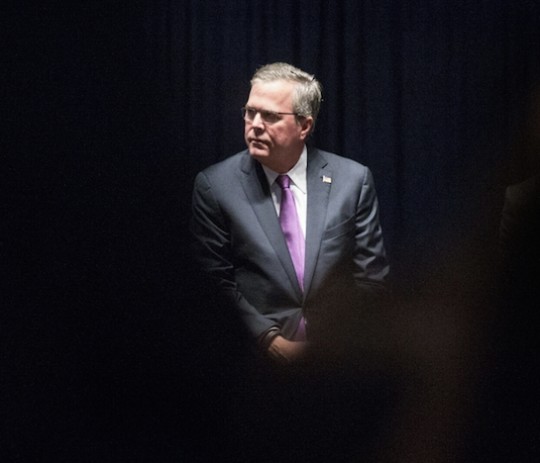Today’s New York Times has a front-page hit piece on Jeb Bush, the reasonable, moderate, why-can’t-all-GOP-pols-be-more-like-him Republican who nevertheless must be destroyed lest he derail the historic ambitions of Hillary Clinton. It is ridiculous.
The article purports to document Bush’s "unapologetic determination to expand his wealth" after leaving public office in 2007. The Times is writing about his unapologetic determination because, as reporter Michael Barbaro explains, Bush’s efforts "may prove challenging to explain should he mount a Republican campaign for the White House," or as the headline blares: "Jeb Bush’s Rush to Make Money May Be Hurdle."
While conceding that "The path from public service to private riches is well trodden by politicians of both parties," the Times argues that Bush has taken a particularly "aggressive and expansive approach to making money."
The central focus of the Times piece is Bush’s association with a Miami start-up called InnoVida, for which Bush served as a consultant and board member. The company went bankrupt in 2011 and its founder, Claudio Osorio, went to jail after pleading guilty to fraud; investors lost a lot of money. Naturally, the Times tries to suggest that Bush may have had a role in the company’s collapse.
"There is no evidence that board members were aware of Mr. Osorio’s fraud," Barbaro writes. "But Christopher Korge, an investor in the company and board member, said he recalled talking to Mr. Bush about their shared frustration with the company’s delays in distributing financial information and reluctance to hold regular board meetings." [emphasis mine]
In addition to this groundbreaking revelation (a board member expressed frustration!), Barbaro notes that the lawyer representing a group of InnoVida investors who lost money (and are suing Bush and other to recover those losses) says Bush and other board members should have uncovered the Osorio’s fraudulent activity.
The piece then quotes Korge—"a major Democratic Party fund-raiser who lost millions on his investment in InnoVida"—saying Bush "did everything that he should have done to protect the shareholder."
Some of Bush’s other associations have at least some political significance. For example, he sat on the board of Tenet Healthcare, a health services company that supports Obamacare, and he reportedly tried to persuade billionaire New York Times investor Carlos Slim to invest in the collapsing Wall Street firm Lehman Brothers in 2008. These are certainly things that could potentially come up in a GOP primary debate. But overall, it’s pretty thin gruel.
One major takeaway from the piece is the paltry compensation Bush receives on the speaking circuit (about $50,000 per speech) compared to former secretary of state Hillary Clinton, who makes four times as much, and plans to make dozens this year as she promotes her upcoming memoir "Hard Choices." Groups willing to part with $200,000 will be treated, per the Times, to "pithy reflections and Mitch Albom-style lessons from her time as the nation’s top diplomat."
